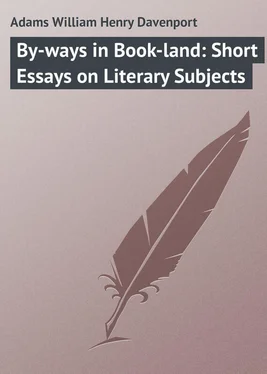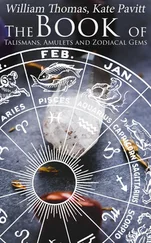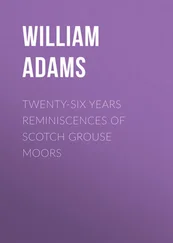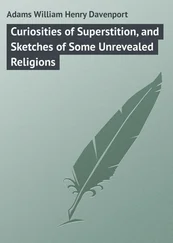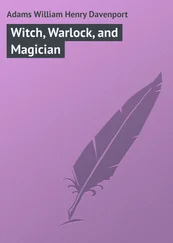William Adams - By-ways in Book-land - Short Essays on Literary Subjects
Здесь есть возможность читать онлайн «William Adams - By-ways in Book-land - Short Essays on Literary Subjects» — ознакомительный отрывок электронной книги совершенно бесплатно, а после прочтения отрывка купить полную версию. В некоторых случаях можно слушать аудио, скачать через торрент в формате fb2 и присутствует краткое содержание. Жанр: foreign_language, foreign_prose, на английском языке. Описание произведения, (предисловие) а так же отзывы посетителей доступны на портале библиотеки ЛибКат.
- Название:By-ways in Book-land: Short Essays on Literary Subjects
- Автор:
- Жанр:
- Год:неизвестен
- ISBN:нет данных
- Рейтинг книги:4 / 5. Голосов: 1
-
Избранное:Добавить в избранное
- Отзывы:
-
Ваша оценка:
- 80
- 1
- 2
- 3
- 4
- 5
By-ways in Book-land: Short Essays on Literary Subjects: краткое содержание, описание и аннотация
Предлагаем к чтению аннотацию, описание, краткое содержание или предисловие (зависит от того, что написал сам автор книги «By-ways in Book-land: Short Essays on Literary Subjects»). Если вы не нашли необходимую информацию о книге — напишите в комментариях, мы постараемся отыскать её.
By-ways in Book-land: Short Essays on Literary Subjects — читать онлайн ознакомительный отрывок
Ниже представлен текст книги, разбитый по страницам. Система сохранения места последней прочитанной страницы, позволяет с удобством читать онлайн бесплатно книгу «By-ways in Book-land: Short Essays on Literary Subjects», без необходимости каждый раз заново искать на чём Вы остановились. Поставьте закладку, и сможете в любой момент перейти на страницу, на которой закончили чтение.
Интервал:
Закладка:
‘That pale, that white-faced shore,
Whose foot spurns back the ocean’s roaring tides,
And coops from other lands her islanders…
That England, hedged in with the main,
That water-wallèd bulwark, still secure
And confident from foreign purposes.’
So, in ‘Richard II.,’ John of Gaunt describes England as
‘This fortress built by Nature for herself
Against infection and the hand of war.
‘The silver sea,’ he says, serves it
‘In the office of a wall,
Or, as a moat, defensive to a house,
Against the envy of less happier lands;
while once again he refers to England as
‘Bound in with the triumphant sea,
Whose rocky shore beats back the envious siege
Of watery Neptune.’
There is one thing, however, without which, in Shakespeare’s view, even our lucky isolation cannot avail to save us, as a nation, from destruction. ‘If they (the English) were true within themselves they need not to fear, although all nations were set against them.’ So wrote Andrew Borde, when Henry VIII. was King; and in the old play of ‘John, King of England’ the author made one of his personæ say:
‘Let England live but true within itself,
And all the world can never wrong her state.’
So Shakespeare, when he came to treat of the same subject, made the Bastard declare that
‘This England never did, nor never shall
Lie at the proud foot of a conqueror,
But when it first did help to wound itself…
Nought shall make us rue,
If England to itself do rest but true.’
There is much virtue in an ‘if,’ and the poet repeats the warning in another play. In ‘3 Henry VI.’ Hastings says:
‘Why, knows not Montague that of itself
England is safe, if true within itself?’
That, again, which most troubles John of Gaunt, in the passage already quoted, is the fact that England, which was wont to conquer others, ‘Hath made a shameful conquest of itself;’ while Chorus, in ‘Henry V.,’ laments that France has found in England ‘a nest of hollow bosoms, which he fills with treacherous crowns,’ adding,
‘What might’st thou do, that honour would thee do,
Were all thy children kind and natural?’
Here, then, is a lesson for our times. What Shakespeare felt to be true in his own day is equally, nay more, true now – that England, ‘set in a silver sea,’ is safe from all assaults, save those which she may suffer at the hands of her own ‘degenerate and ingrate’ sons.
HEREDITY IN SONG
It is said that the verses in a recent number of Macmillan’s Magazine , entitled ‘In Capri,’ and signed ‘W. Wordsworth,’ are from the pen of a grandson of the famous author of ‘The Excursion.’ They are gracefully written, in an agreeable rhythm, and with much command of felicitous expression. If, therefore, the writer has indeed the relationship to the great Wordsworth which rumour assigns him, the fact is interesting, and suggests some considerations as to the transmission of the poetic faculty from one generation to another.
One might have thought that this transmission would have been tolerably common; that the sons at least, if not the grandsons, of a genuine poet could scarcely fail to inherit something of their progenitor’s peculiar powers. One might even have supposed that poetry would run – as other things have run – in families, making the ‘bards’ almost a gens , or class, by themselves. Poetry, after all, is an affair mainly of the temperament – of fancy and imagination, of feeling and passion; and these are qualities which one might have imagined would be handed down, not greatly impaired, from father to son, and so on, for at least a fairly prolonged period.
There have, indeed, been instances in which literary capacity has been a special characteristic of persons in close relationship to each other: one thinks at once of the Sheridans, the Coleridges, the Wordsworths, and others who have been notable for their productiveness in prose and verse. But the cases in which the purely poetic gift – the vision and the faculty divine – has been inherited and exercised are few indeed. A certain intellectual power will mark the members of a family, and exhibit itself in various attractive ways, but less in the domain of poetry than any other. It would seem that sheer mental force can be communicated, but that the higher qualities of the human spirit are not so readily transmitted; are, in fact, hardly transmissible, at any rate in quite the same degree. Not only are the examples of poetic heredity rare, but there are still fewer, certainly in the history of English literature, in which the son or the daughter has equalled the parent in poetic capacity.
The case of the Colmans and the Dibdins is one of literary rather than poetic faculty. In each instance the father and son wrote verse, much of it excellent in its way, but assuredly not of the first order. The one name will always be associated with admirably humorous performances, while the other will continue to shine resplendent on the roll of writers of sea-songs. But work of that sort is a matter of knack rather than of inspiration, and ‘poetry’ is a word hardly to be mentioned in remote connection with it. Very different are the circumstances when we come to the children of Samuel Taylor Coleridge – to Hartley and to Sara, and to Hartley in particular. Sara had less than a half share of the poetic patrimony. She penned very pleasant rhymes for children, and some still linger in the collections; but they are not of singular merit. Much better than these are the lyrics which are to be found scattered through her prose romance, ‘Phantasmion’ – lyrics which undoubtedly have imaginative value. They are much less known than they deserve to be, though a few of them have recently been reprinted. They are not, however, to be compared with the best that Hartley furnished. Sara had ideas, but her mode of expression inclined to the turgid. Hartley was clearer and smoother in his style, and now and then, as in some of his sonnets, and especially in the lines beginning,
‘She is not fair to outward view,
As many maidens be,’
he actually attained perfection. The last-named gem is likely to last as long as anything written by the elder Coleridge.
Mrs. Norton and Lady Dufferin are instances of ability descending from grandfather to granddaughters, and of ability, moreover, which, as regards poetical writing, grew and improved in the process of descent. The author of ‘The Duenna’ produced a number of neat and lively rhymes, but, great as Sheridan was as a dramatist, he was certainly not a poet. Now, his granddaughters were really poets, though by no means of the front rank. Scarcely any of Mrs. Norton’s verse is now habitually read, but some of it is well worth reading. On the other hand, Lady Dufferin, who published much less than her sister did, is much better remembered, if only because she was the author of ‘Katie’s Letter’ and ‘The Irish Emigrant’s Lament.’ These pieces are distinguished by true human feeling, and hence their continued popularity. Of Adelaide Anne Procter, daughter of ‘Barry Cornwall,’ it is not necessary to say much, for certain of her lyrics are familiar (in feminine mouths, at any rate) as household words. Everyone, alas! knows ‘The Lost Chord;’ many of us wish that we did not. That the ‘Legends and Lyrics’ of Adelaide are considerably more widely known than anything produced by her father is, it is to be feared, only too true; and yet, full as they are of tenderness and grace, they have not the claims to attention possessed by the songs and dramatic fragments of ‘Barry Cornwall.’ The latter are unduly neglected; while the songs are among the most virile and vigorous in the language. The father’s was altogether the stronger nature; the daughter set an example of gentle lachrymoseness, which has been followed, unfortunately, by too many female rhymers.
Читать дальшеИнтервал:
Закладка:
Похожие книги на «By-ways in Book-land: Short Essays on Literary Subjects»
Представляем Вашему вниманию похожие книги на «By-ways in Book-land: Short Essays on Literary Subjects» списком для выбора. Мы отобрали схожую по названию и смыслу литературу в надежде предоставить читателям больше вариантов отыскать новые, интересные, ещё непрочитанные произведения.
Обсуждение, отзывы о книге «By-ways in Book-land: Short Essays on Literary Subjects» и просто собственные мнения читателей. Оставьте ваши комментарии, напишите, что Вы думаете о произведении, его смысле или главных героях. Укажите что конкретно понравилось, а что нет, и почему Вы так считаете.
